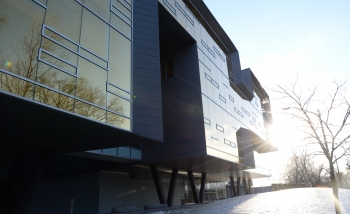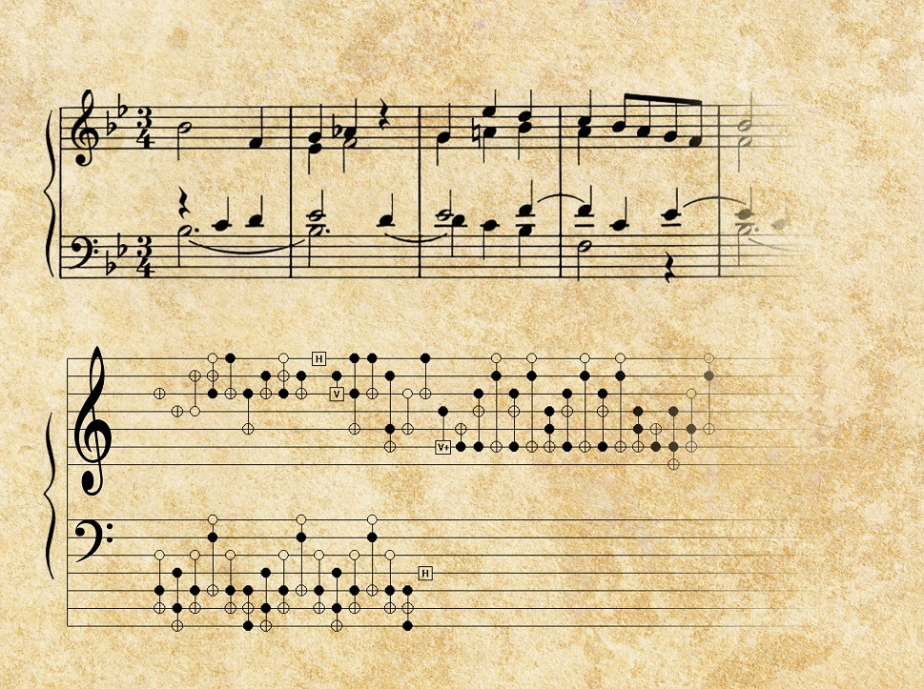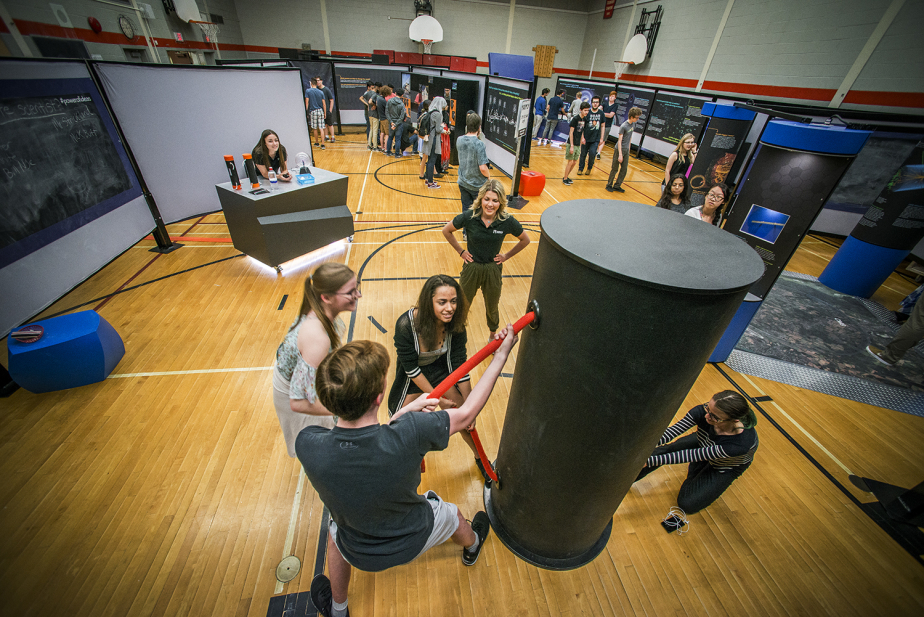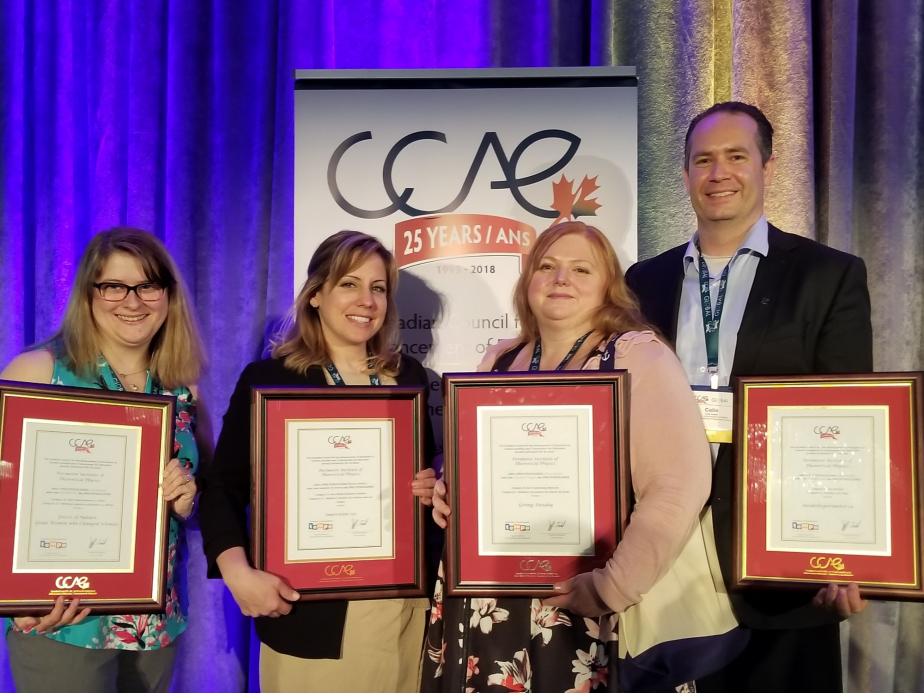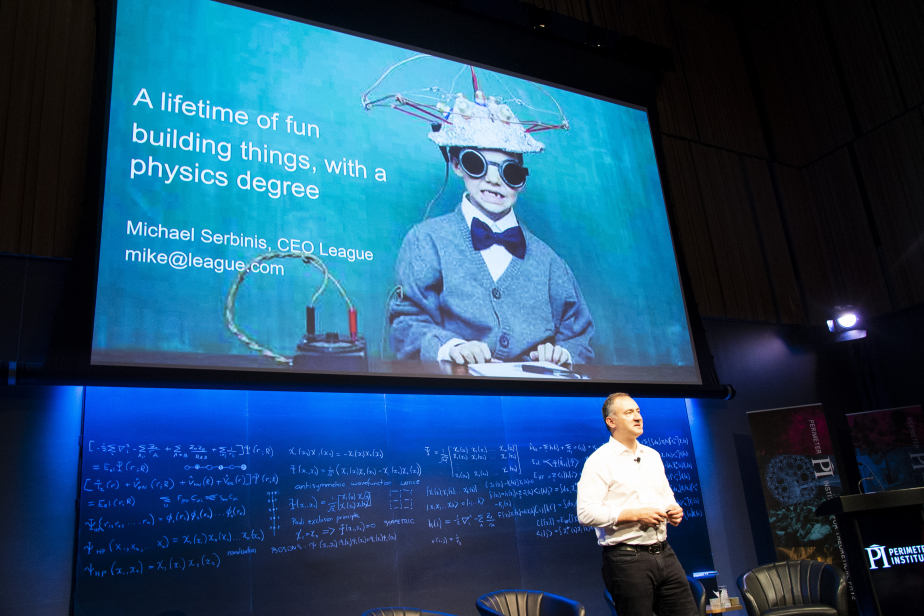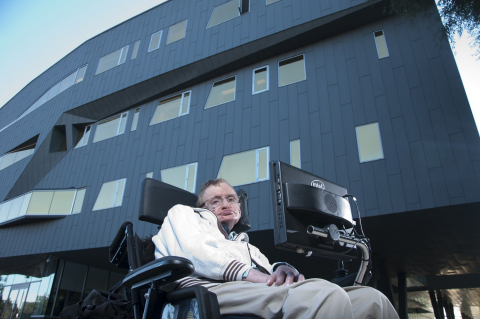ADVANCES IN THE INFINITESIMAL, THE INFINITE, AND IN SCIENCE ITSELF
Quantum computing is often painted as an ultra-powerful technology that will first outpace, and then replace, its classical counterpart. In reality, the two are inextricably linked. Perimeter Associate graduate student Giacamo Torlai, together with Associate Faculty member Roger Melko, collaborators at the University of Waterloo, and other industry partners published a paper in Nature Physics using an artificial intelligence to tackle a particularly gnarly challenge of how quantum and classical systems can evolve together.
Denis Rosset, a Perimeter postdoctoral researcher, also made progress in the realm of quantum computing. Using resource theory and game theory, Rosset and collaborators put forward a method in Physical Review X to verify whether a quantum memory truly is quantum in nature. This first resource theory of quantum memories is already opening new research avenues for classifying quantum channels.
Zooming out a little (or, rather, a lot), Perimeter Associate Faculty member Ue-Li Pen was part of a Canadian team that made measurements of a pulsar’s magnetosphere with unprecedented detail, thanks to the tail of ionized gas from its companion star. In the journal Nature, the team detailed how plasma acted like a magnifying glass, allowing observers to pick out individual emission regions on the pulsar.
Meanwhile, Perimeter postdoctoral researcher Nestor Ortiz showed that neutron stars can be used as tools to find out more about the nature of gravity. Ortiz and collaborator Raissa Mendes, at Instituto de Fisica, Universidade Federal Fluminense in Brazil, demonstrated that neutron stars will “ring” with different frequencies depending on which theory of gravity is used as a framework – results that could be verified with gravitational wave detectors such as LIGO.
Researchers also set their minds to the lofty task of determining the best way to do science itself. At the three-day “Open Research” conference, 30 scientists, designers, and entrepreneurs gathered at Perimeter to examine the structure of how science is practiced and shared. Looking to other fields such as open-source software, the group mapped out an alternate, open perspective on science and identified paths that could lead there.
EMPOWERING A NEW COHORT OF CREATIVE MINDS
Designed to inspire the next generation of pioneering thinkers, Perimeter’s Power of Ideas tour continued into 2018. The tour reached more than 130 communities and engaged more than 34,000 students throughout Ontario, including in many rural and northern areas.
Perimeter’s Educational Outreach team released three new classroom resources for high school teachers and their students on climate change, energy, and waves. The resources, which are available in English and French, were created thanks to funding from the Ontario Ministry of Education. Each one comes with lesson plans, hands-on activities and demonstrations, modifiable worksheets, and original videos. Want to get your hands on one? Teachers can download them for free here.
PLENTY OF RECOGNITION FOR PERIMETER RESEARCHERS
In June, Perimeter Director Neil Turok was named an Officer of the Order of Canada (Honorary) in recognition of his contributions to the field of theoretical physics and cosmology. A month later, Associate Faculty member and founding Perimeter faculty member Michele Mosca was appointed a Knight in the Order of Merit by the Government of Italy.
Associate Faculty member Ue-Li Pen received a prestigious Simons Investigator Award to tackle big questions about the universe, becoming the second researcher at a Canadian institution to receive the award since the program was introduced in 2012.
Many other Perimeter researchers and students were also recognized for their exemplary and innovative work.
As an institute, Perimeter was also recognized for excellence by the Canadian Council for the Advancement of Education, taking home several Prix d’Excellence medals for outstanding achievements in communications, publications, and fundraising.
PAVING THE WAY FOR BREAKTHROUGHS
Seven new postdoctoral fellowships were announced to support the research of young scientists at Perimeter. The fellowships are named after exceptional researchers, including Stephen Hawking and Jocelyn Bell Burnell, whose work epitomizes the promise and potential of early career scientists. Applications are being accepted for a number of the positions.
Meanwhile, a $600,000 USD grant from the Simons Foundation has boosted the capacity of Perimeter’s Emmy Noether Fellowships for women physicists, enabling the appointment of more researchers and allowing past participants to return as Fellows in later years. Applications for Simons Emmy Noether Fellowships remain open until January 15, 2019.
At the undergraduate level, Perimeter announced a new program that will bring 20 students in their final year of an undergraduate physics degree to Perimeter Institute for two weeks in May 2019. The deadline for applications is January 7, 2019.
All that study can take you many places – not just within academia. Current students and postdocs from institutes across southern Ontario learned about the myriad opportunities that exist for physicists outside academia at Perimeter’s first Career Trajectories Day. The event featured talks and panel discussions from former physicists who have found success in areas ranging including startups, finance, and the arts.
Perimeter is also among 13 partner organizations contributing to the Arthur B. McDonald Canadian Astroparticle Physics Research Institute, a national research network dedicated to understanding some of the universe’s deepest mysteries that launched this spring.
WELCOMING NEW FACULTY
Perimeter welcomed three new Associate Faculty members who will bolster the Institute’s mathematical and cosmological research and strengthen ties to partner universities.
Mathematician and computer linguistics researcher Matilde Marcolli is cross-appointed with the Mathematics Department at the University of Toronto, while mathematician Ben Webster is cross-appointed with the University of Waterloo’s Department of Pure Mathematics. Cosmologist Will Percival also holds the new Lazaridis Distinguished Research Chair in Astrophysics at the University of Waterloo.
FAREWELL TO STEPHEN HAWKING
Perimeter mourned the passing of Stephen Hawking, whose boundless intellect unveiled the workings of our universe and whose life remains an example of the power of the human spirit.
Perimeter Director Neil Turok worked with Hawking at the University of Cambridge, where they became close collaborators and friends, and at Perimeter, where Hawking was a Distinguished Visiting Research Chair.
“Stephen’s life was heroic, in so many ways. He was a brilliant visionary in theoretical physics, setting an incredibly bold agenda for the field,” Turok said.
DELIVERING FASCINATING SCIENCE STRAIGHT TO YOU
Sharing great science is built right into Perimeter’s mission, and this year was no exception. We added new posters to our “Forces of Nature” poster series celebrating women in science, including Donna Strickland, the co-winner of this year’s Nobel Prize in Physics, Vera Rubin, and Jocelyn Bell Burnell. The entire series is free to download and print.
Our public lecture series offered an inside look at the Event Horizon Telescope, an overview of the weirdest stars in the universe, a peek at the tiniest building blocks of the universe, and a special guest lecture from Dame Jocelyn Bell Burnell, co-discoverer of pulsars. (Don’t forget, you can watch them all – and hundreds of other science videos – on Perimeter’s YouTube channel.)
On InsidethePerimeter.ca, we shared stories, videos, and other cool content about theoretical physics. Our “People of PI” series lets readers get to know the people behind the science. This year, we chatted with Ghanaian trailblazer Prince Osei, quantum creator Timothy Hsieh, gravity-defier Claudia de Rham, and more.
Meanwhile, Perimeter’s award-winning “Slice of PI” series delved into scientists’ favourite equations, played the music of the cosmos, marvelled at the natural beauty of snowflakes, explained Emmy Noether’s theorem from kindergarten to PhD, and challenged readers with plenty of quizzes.
We also released our new “Quantum to Cosmos” interactive scale, where you can delve deep into the atom or zoom out to see the limits of our universe. It’s a beautiful reminder of all that we know, and all that is yet to be discovered, as we head into a new year of exploration.
À propos de l’IP
L'Institut Périmètre est le plus grand centre de recherche en physique théorique au monde. Fondé en 1999, cet institut indépendant vise à favoriser les percées dans la compréhension fondamentale de notre univers, des plus infimes particules au cosmos tout entier. Les recherches effectuées à l’Institut Périmètre reposent sur l'idée que la science fondamentale fait progresser le savoir humain et catalyse l'innovation, et que la physique théorique d'aujourd'hui est la technologie de demain. Situé dans la région de Waterloo, cet établissement sans but lucratif met de l'avant un partenariat public-privé unique en son genre avec entre autres les gouvernements de l'Ontario et du Canada. Il facilite la recherche de pointe, forme la prochaine génération de pionniers de la science et communique le pouvoir de la physique grâce à des programmes primés d'éducation et de vulgarisation.
Ceci pourrait vous intéresser
